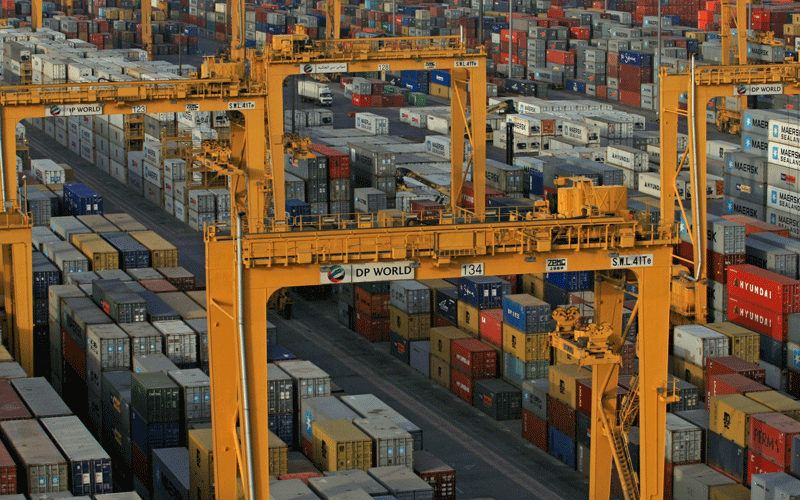UAE’s non-oil foreign trade reaches Dh524.7b in H1
By admin Wednesday, 24 December 2014 11:34 AM

The preliminary statistics of the Federal Customs Authority, or FCA, showed that imports amounted to Dh340.1 billion, exports to Dh63.3 billion and re-exports to Dh121.4 billion. The UAE has continued to strengthen its position in the world trade map, and expand the role it plays in facilitating trade between the countries, driven by the rise in economic activities boosted by competitiveness in many global indicators.
Trade was dominated by gold, diamonds, automobiles and metals, as the FCA’s preliminary statistics revealed that gold and semi-processed gold topped imported items with 15 per cent equivalent to Dh51.3 billion of the UAE’s total imports.
It was followed by automobiles valued at Dh24.6 billion, non-composite diamonds worth Dh20.7 billion and jewellery amounting to Dh16.3 billion, with mobile phones worth Dh12.4 billion.
According to the FCA data related to non-oil exports, gold and semi-processed gold topped with Dh19.9 billion representing 32 per cent of total exports, followed by raw aluminum with a value of Dh4.8 billion; ornaments and jewellery made of precious metals with a value of Dh3.2 billion; and ethylene polymers in primary forms valued at Dh2.9 billion.
Furthermore, the exports of copper wire reached Dh2.6 billion, which is about four per cent of the UAE’s total non-oil exports during the first half of 2014.
The FCA added that the nation’s foreign non-oil trade was relatively growing steadily during the period. The UAE is keen to facilitate global trade and remove all the customs and non-customs obstacles hampering the trade with the other countries, meeting the growing needs of consumers and to maintain the economic interests of the business sector locally and abroad.
The FCA has adopted several initiatives aiming at achieving growth in foreign non-oil trade and facilitating trade, particularly developing customs procedures and policies; developing electronic systems; reducing the customs clearance time; managing customs clearance; providing statistical data and information; addressing trade obstacles, conducting international studies about global best practices; providing customs training; and enhancing the competitiveness indicators in the customs work.
With regards to the UAE’s trading partners in the field of direct foreign trade, the FCA said that the regional structure of the trading partners of the UAE in the field of non-oil trade was stable in terms of countries’ quotas, where Asia, Australia and the Pacific region maintained their positions on the top of the list of the UAE’s non-oil trading partners, with a percentage of 42 per cent of the total non-oil trade value, followed by the European region with 27 per cent, the Mena region with 15 per cent,and America and the Caribbean with nine percent.




























Add new comment